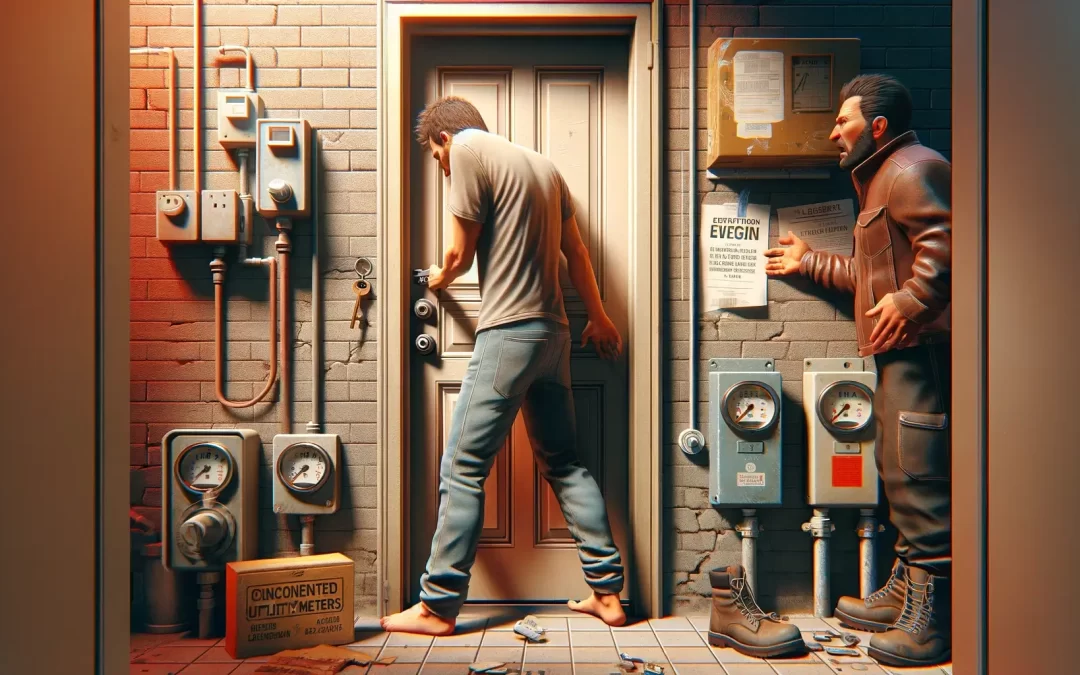Illegal lockouts are a serious violation of tenant rights and can disrupt the habitability of a rental property. As a tenant, it’s essential to understand your rights and legal options when facing an illegal lockout to ensure that you can protect your tenancy and maintain habitability in your home.
In this blog, we will discuss what constitutes an illegal lockout, how to legally respond to such actions, and steps you can take to safeguard your rights as a tenant.
Understanding Habitability and Illegal Lockouts
Habitability is a foundational principle in landlord-tenant law, ensuring that rental properties are safe, healthy, and fit for human habitation. Illegal lockouts occur when a landlord unlawfully changes the locks or denies a tenant access to their rental unit without following proper legal procedures.
This can jeopardize habitability by depriving tenants of essential services and disrupting their living environment. Illegal lockouts are not only a violation of tenant rights but also a breach of the implied warranty of habitability, giving tenants legal grounds to take action against their landlord.
Identifying Illegal Lockouts
Illegal lockouts can take various forms, including changing the locks without providing new keys to the tenant, blocking access to common areas or amenities, or disconnecting utilities such as water, electricity, or gas.
Landlords may attempt illegal lockouts for various reasons, such as attempting to evict tenants without going through the proper legal process or retaliating against tenants for asserting their rights. Regardless of the landlord’s motives, illegal lockouts are unlawful and can have serious consequences for both landlords and tenants.
Legal Protections for Tenants
Tenants have legal protections against illegal lockouts under landlord-tenant laws and regulations. In most jurisdictions, landlords are required to follow specific procedures and obtain a court order before evicting tenants or changing locks.
This ensures that tenants have an opportunity to defend themselves in court and assert their rights before being removed from their rental unit. If a landlord engages in an illegal lockout, tenants have the right to take legal action to regain access to their rental unit, seek damages for any losses or damages suffered, and enforce habitability standards.
Responding to Illegal Lockouts
If you find yourself illegally locked out of your rental unit, it’s crucial to respond promptly and assert your rights as a tenant. Start by attempting to communicate with your landlord to resolve the situation amicably. Document all communication with your landlord, including dates, times, and content, to provide evidence of their actions.
If your landlord refuses to cooperate or continues to deny you access to your rental unit, consider taking legal action by contacting a tenant rights attorney. This step is particularly important when responding to utility shutoffs that may accompany an illegal lockout.
Seeking Legal Assistance
Illegal lockouts can be complex legal matters, and seeking assistance from a knowledgeable attorney is advisable. A tenant rights attorney can review your case, assess the legality of the lockout, and advise you on your rights and options for recourse.
They can also communicate with your landlord on your behalf, negotiate settlements, or represent you in court if necessary. With legal assistance, you can assert your rights as a tenant, regain access to your rental unit, and seek remedies for any damages or losses suffered as a result of the illegal lockout.
Documenting Evidence
When facing an illegal lockout, it’s essential to gather and document evidence to support your case. Take photographs or videos of the illegal lockout, including any damage to the property or changes to the locks. Keep copies of any correspondence with your landlord, including emails, letters, or text messages, regarding the lockout.
Additionally, gather any relevant documentation, such as your lease agreement, rent receipts, or eviction notices, to demonstrate your legal right to occupy the rental unit.
Protecting Your Tenancy
In addition to seeking legal assistance and documenting evidence, there are steps you can take to protect your tenancy and maintain habitability in your rental unit. If necessary, consider seeking alternative housing arrangements temporarily while you address the illegal lockout and pursue legal action against your landlord.
Communicate with your landlord in writing to assert your rights and request the immediate restoration of access to your rental unit. By taking proactive measures and asserting your rights, you can protect your tenancy and ensure that habitability standards are upheld in your rental property.
Upholding Tenant Rights
Illegal lockouts are a serious violation of tenant rights and can disrupt habitability in rental properties. If you find yourself illegally locked out of your rental unit, it’s essential to respond promptly, assert your rights, and seek legal assistance to regain access and protect your tenancy.
By understanding your rights as a tenant, documenting evidence, and seeking legal representation, you can hold your landlord accountable for their unlawful actions and ensure that habitability standards are maintained in your rental home. Remember, you have legal protections as a tenant, and you do not have to tolerate illegal behavior from your landlord.

